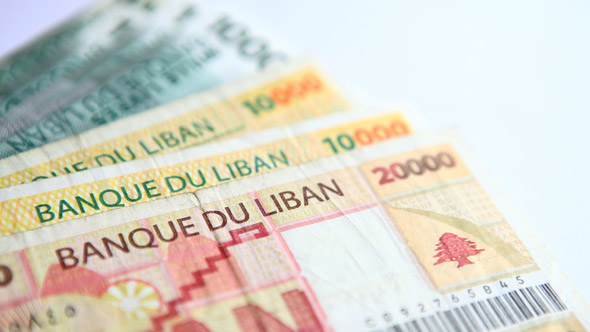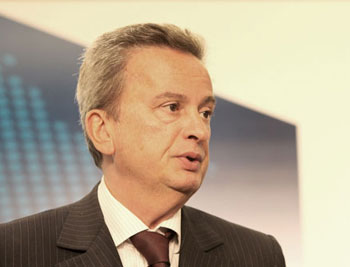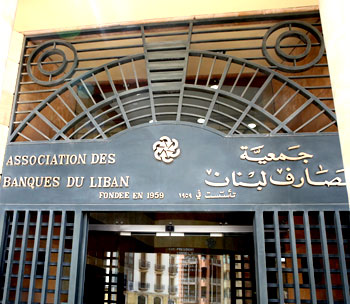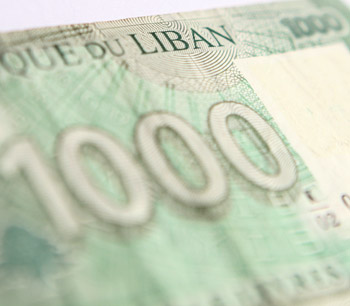Banking Sector 2012: Lebanon Defying the Mayhem
Marcopolis has investigated the secrets of the Middle-Eastern capital city’s success in dealing with money and how top bankers are dealing with the current political situation in the region.

Banking Sector 2012: Lebanon Defying the Mayhem
Marcopolis has investigated the secret of the Middle-Eastern capital city’s success in dealing with money and how top bankers are dealing with the current political situation in the region.
Reliability, confidentiality and performance are key pillars of modern banking. As a banking hub, Beirut has managed to uphold high standards, even during the darkest days of the devastating civil war which lasted from 1975 to 1990 and which saw Lebanon invaded by Israel three times.
An idle wander down Hamra Street in the heart of Beirut, which also harbors the Lebanese central bank “Banque du Liban”, reveals that the city’s Wall Street was hardly touched by the war. Most houses there are old, reminiscent of the architecture in the 1970s. As most militia groups, including the PLO, had bank accounts here, none of the fighting parties dared to touch the heart of Lebanese banking.
Defying the mayhem
Although highly indebted, the state has always paid back interest coupons on sovereign bonds on time. Even today, the interest rates that Lebanese lenders pay on their bank accounts are lower than the London Interbank Offered Rate (LIBOR). The banking sector also supports the government by buying the Government’s Treasury Bills and Euro bonds. Thanks to greater fiscal discipline and some privatizations, the debt-to-GDP ratio was recently reduced from 180% to 130%.
There are 37 local banks and 12 international banks operating in Lebanon. Due to the high density of banks, Lebanon has been called the “Switzerland of the Orient”, especially during the heyday of the 1960s and early 1970s. The Lebanese banking sector is extremely liquid. As of the end of March, deposits reached around 117 billion U. S. dollars, while loans to the private sector hit around 41 billion U. S. dollars.
Lebanon has no desert and no income from oil and gas, although there are huge off-coast reserves just waiting to be tapped.
“We are operating in a very tough environment. That’s why we are obliged to overpay on our dollar deposit: on average we are paying 3% on our dollar deposit in Lebanon, while it is somewhere between 0.35% (Libor) to 1.0% (Euribor) depending on the currency and the maturity,” Dr. Makram Sader, Secretary General of the Association of Banks in Lebanon (ABL), told Marcopolis.
Central Bank Governor Riad Salame told Marcopolis that the stability of the Lebanese banking sector and of the Lebanese Lira is high on the agenda. “We are maintaining the same monetary policy, so we are looking at a stable currency. Of course in Lebanon we deal the dollar against the Lebanese pound, and this rate will remain stable.” The fact that Lebanon has one of the highest gold reserves-to-GDP ratios in the world also makes the state unique in the region.
A special case
“We have very high competition within our banking industry,” Dr. Makram Sader, the Secretary General of the Association of Banks in Lebanon (ABL) told Marcopolis. “But regionally, we don’t have as high competition as in Lebanon,” he claimed.
There are 37 local banks and 12 international banks operating in Lebanon. Due to the high density of banks, Lebanon has been called the “Switzerland of the Orient”, especially during the heyday of the 1960s and early 1970s. The Lebanese banking sector is extremely liquid. As of the end of March, deposits reached around 117 billion U. S. dollars, while loans to the private sector hit around 41 billion U. S. dollars.
Based on the strong first two months of the year, ABL expected a growth rate of around 7% on banking activities for the year 2012. In the meantime, the civil war in neighboring Syria has had negative spillover effects on Lebanon, which are weighing on bank growth.
“That is the only thing we cannot fully control ourselves, and our country relies on the wisdom of our ruling class to avoid any Syrian involvement from the Lebanese side,” said Dr. Sader.
Due to the danger of an uncontrolled regional war triggered by the foreign-controlled “uprising” in Syria, Lebanese banks have put their plans to expand on hold. “We are not expanding regionally as of now, except that one bank is trying to expand in Istanbul in Turkey, which is Audi Group. But it’s too early to talk about a Lebanese banking industry’s expansion in the Turkish market,” Dr. Sader said. The ABL is responsible for Lebanon’s image as a financial hub. “Externally, the events in Syria are the most serious threat for us. We managed in 2011, despite those events, to have good economic growth. But we are now starting to feel the negative impact of events in Syria in the area of exports, transit of goods, tourism, FDI, etc…
An unexpected blow
In August 2012, the three Gulf Arab states Saudi Arabia, Qatar and United Arab Emirates (UAE) demanded that their citizens cancel planned travel to Lebanon and told those who were in the country to leave immediately, despite the President Michel Suleiman’s assurance to the GCC (Gulf Co-operation Council) that his country was safe. The move was a blow to Lebanese banks, which remain attractive for wealthy GCC citizens who aim to diversify their investments and not to rely solely on banks at home or in Switzerland.
Now that the UAE, Bahrain and Saudi Arabia have successfully built up competitive financial centers in their own countries, the days when Arab foreigners shipped their money to Beirut are over. Today, only 15% of deposits in Lebanon belong to non-Lebanese customers.
Despite all the challenges, Saad Azhari, Chairman and General Manager of BLOM Bank (Banque du Liban at d’Outre-Mer) expressed some optimism: “The banking sector in Lebanon performed reasonably well compared to the situation in the region. As you mentioned, there was an increase of provisioning as a measure to offset the exposure in Syria, because the Lebanese banks have granted loans to Syrian customers.” According to Azhari, the March 2012 deposits recorded a growth of about 10% year-on-year and lending increased by about 13%.
Light in the tunnel
This development was reflected in the three biggest lenders’ first quarter results. Saad Azhari: “The three main banks listed on the stock market, Bank Audi, BLOM Bank and Byblos Bank, have published the results of the first quarter and all three have witnessed a slight increase in profits in the first quarter of 2012, but all of us have also taken important provisioning; despite this provisioning, we’ve managed to have a slight increase of profits.”
Azhari added that “with Lebanese banks having a return on equity between 15% to 20% over the last few years, and compared to the returns we are seeing in Europe and the US, I think the banking sector in Lebanon is well-off.”
High standards in rough waters
In order not to move the banks away from the global sphere, Lebanon has assured the UN, the OECD and the European Union that it would fully comply with sanctions imposed against Syria and Iran. In addition, the government and the central bank have stepped up their fight against money laundering.
ABL’s Dr. Sader: “If we are dealing with a U.S. or European bank, Deutsche Bank or J.P. Morgan, and if these banks are complying with the U.S. and EU sanctions against Syria and Iran, then Lebanese banks should comply as well. It’s a way to implement sanctions voted by EU and U.S. outside of the United Nations.”
In addition, he also said “we have introduced a lot of amendments to our anti-money laundering financing of terrorism laws. Our basic law, no. 318 of 2001, which we are amending will cover, in addition to the seven financial crimes described in it, ten more ones.”
However, Dr. Sader denied that his country was a sort of Monaco in the Middle East. “Lebanon has never been a tax haven. You think a British citizen or a French citizen is rushing to Lebanon to deposit his money here?”
Risk assessment in Lebanon works differently. The danger of a military conflict is present on a level unlike any other country in the Middle East. Besides Syria, the constant threats by Israel that they will bombard Iran to stop Tehran from moving ahead with its alleged nuclear bomb project is damaging Lebanses prospects. The Israelis fear that a war against Iran will trigger a direct response from the Shia militia Hezbollah.
“We have also taken all the commercial precautions by asking the banks to undertake the necessary general provisions for the worst case scenario,” said Central Bank governor Salame.
Against all odds, he sums up the sector’s expectations with the typical spirit of Lebanese optimism. “I think the anticipation of negative growth worldwide is already discounted in the economy and we might always be surprised by a different outcome. I hope so.”


